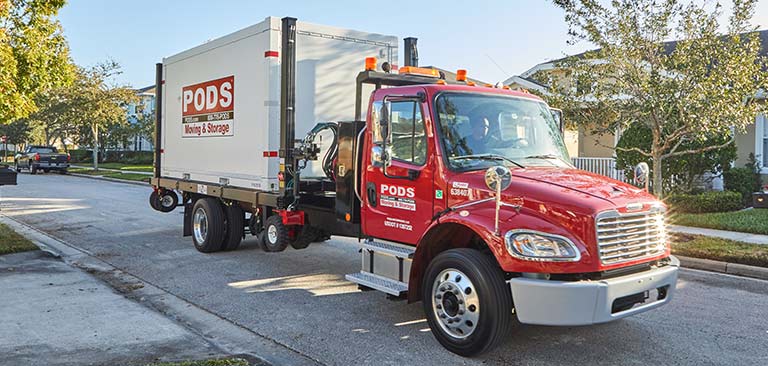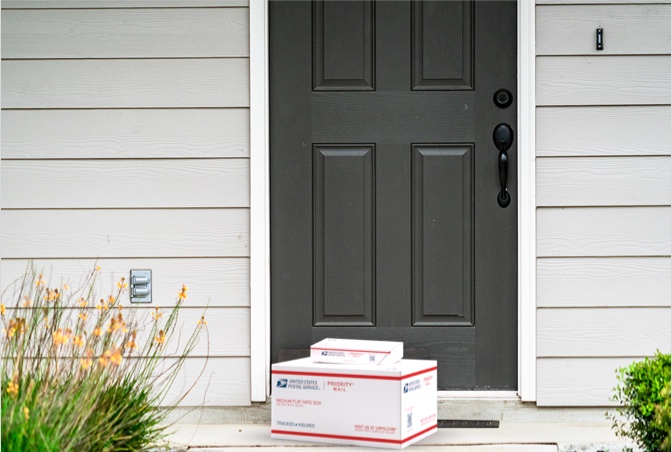Published May 15, 2023 | 8 min read

May is National Moving Month and it marks the beginning of the busiest period of the year for real estate businesses, moving companies, and rental agencies. If you are planning a move—whether it’s around the corner or across the country—advance planning can save you a lot of cash.
A well-known quote, contained in a blockquote element.
Of course, some moving costs are unavoidable, but it is possible to save hundreds (even thousands) of dollars on a move—especially if you are willing to put in a little work. Doing all the work yourself is obviously cheaper than hiring movers, but (even if you are able bodied enough for the task), there is an emotional and physical cost to consider.
Whether you are hiring help or doing it yourself, the two big secrets to keeping your costs low while moving are staying organized and planning ahead. But, in order to do that, there are a lot of smaller factors to consider.
If possible, start planning and preparing for your move at least three months in advance. If you will be booking movers, Zillow suggests you book at least four weeks in advance to avoid scheduling difficulties and last-minute booking fees.
The cheapest time of year to move is between Labor Day and April. Summer is the peak season for moving because most schools are on summer break from June to September and the weather is more reliably dry. Booking movers on a weekday (as opposed to a weekend) may also be cheaper.
Before you start packing boxes, pare down your belongings and get rid of any junk you have hanging around. Why? The more stuff you have, the more it will cost to move it. Start with the rooms you use the least and work your way toward high traffic rooms (like the kitchen, bathrooms, and bedrooms). Split everything into piles (stuff to keep, stuff to donate, stuff to sell, stuff to shred, and garbage). If you find a large collection of things to donate or sell, host a garage or estate sale and earn a little extra cash to put toward the move.
Avoid double-paying for rent, mortgage, utilities, internet, and cable by coordinating your beginning and end dates with utility companies, cable companies, rental agencies, and banks. Some companies are willing to waive activation or installation costs if you are a returning or ongoing customer with a history of on-time payments—but you may have to ask. While you are at it, inquire about discounts or special deals offered by internet and cable companies to help save on costs.

If you are moving a long distance, renting a POD or moving container may be cheaper than relying on a moving truck. Plus, you can pack at your leisure rather than paying by the hour for movers to do it. A long distance move (1,500 miles) with a POD is estimated to cost about $3,000 while hiring a moving company will cost you around $5,000 or more. Local moves with a POD should only cost you about $400 to $600. The only downside is that you have to do all the packing and unloading yourself.
Packing boxes cost anywhere from $1 to $15 depending on their size and purpose—and you will need about 10 to 15 boxes per room. When you are packing up a whole house, that adds up. So, get a little creative about how you collect your moving supplies. Put a call out on social media, Craigslist, or Nextdoor.com for boxes, bubble wrap, and newspaper. Ask for boxes at your local grocery store or at other small businesses. You can also rent reusable plastic boxes from companies like Hiveboxx and some U-Haul locations for about half the cost of purchasing cardboard boxes.
Use soft items you already have like towels, sheets, blankets, and clothes (or those mate-less socks you have lying around) to package your breakable items. Cover framed artwork in blankets, wrap t-shirts around your coffee mugs, roll your lamps in bath towels, and use socks to cushion your glassware. Not only does it save space, it’s also sustainable.
According to Zillow, the average cost of hiring movers is at least $80 to $100 per hour locally and around $2,000 to $5,000 when moving to another state. With hired movers, you typically pay for the truck plus an hourly rate for two (or more) movers (although some movers charge by weight as well). If you are paying those movers to pack your boxes and prep your furniture, those billable hours add up fast. Instead, pack your own boxes and stage everything in a garage or front room so the movers can quickly transport your things to the truck. The less time they spend arranging your things, the less you pay.

If you have a lot of books, there will be a heavy cost to moving them (no pun intended). If your moving company charges by weight, books will add to the cost significantly. Even if you are doing the move yourself, hauling those books can be back breaking work. The average small moving box (a.k.a., a “bankers” box) can hold about 25 pounds of books. Movers are likely to charge $10 to $20 per box to transport that box from one place to another. Comparatively, shipping that box via US Postal Service media mail will cost you roughly $16 to $20 for the same size box. It may seem like a small difference, but if you have A LOT of books, those dollars add up.
In most cases, homeowners’ or renters’ insurance will not cover loss or damage to your possessions while moving. Moving insurance will protect your items if something goes awry as they move from one place to another. It may feel like an annoying additional cost, but it can save you a lot in the long run. Most moving companies offer at least two types of coverage: released value (basic) and full value protection. With released value insurance, movers are only responsible for paying 60 cents per pound per article. For example, if your 50-inch television (weighing 25 pounds) gets lost or damaged, you would only receive $15 (60 cents x 25 pounds). If you can afford to, opt for the full value protection and the movers will be required to repair, replace, or pay current market value for any lost or damaged items.
To avoid missed statements or notifications, be sure to tell us, other banks, credit card companies, and financial agencies about your change of address as soon as possible. Money is often tight during a move, and if you overlook important financial details or payments, it might get even tighter. Before your move, sign up for Maps mobile banking so you will have digital access to your account wherever you go. Through the mobile app, you can also sign up for paperless statements so you can digitally access your transactions at any time. And, if you haven’t already done so, switch to direct deposit so you never have to wait for a check to arrive. You can set up direct deposit with your employer by filling out our Direct Deposit form. You may even receive your money up to two days early with our Early Paycheck program. If we receive your direct deposit from your employer prior to payday, we will make your money available right away. In some cases, up to two days early!
Most importantly, wherever you are going — even if it is outside of the Maps service area — remember that if you are a Maps member now, you can always be a Maps member. Even if you move far away, you don’t have to leave the benefits of banking locally behind. In fact, we have lots of members who bank with us from across the state, across the country, and all over the world. You can stay connected via digital access, mobile and direct deposits, paperless statements, and online bill pay. And, if you ever need help, give us a call or drop us a text at 503.588.0181.